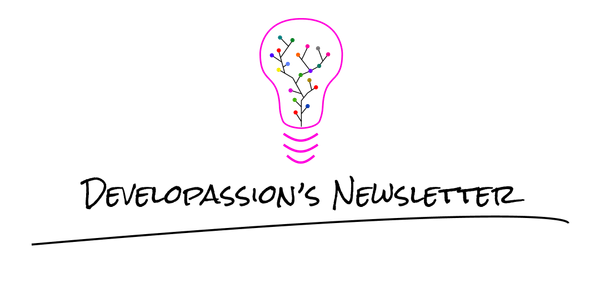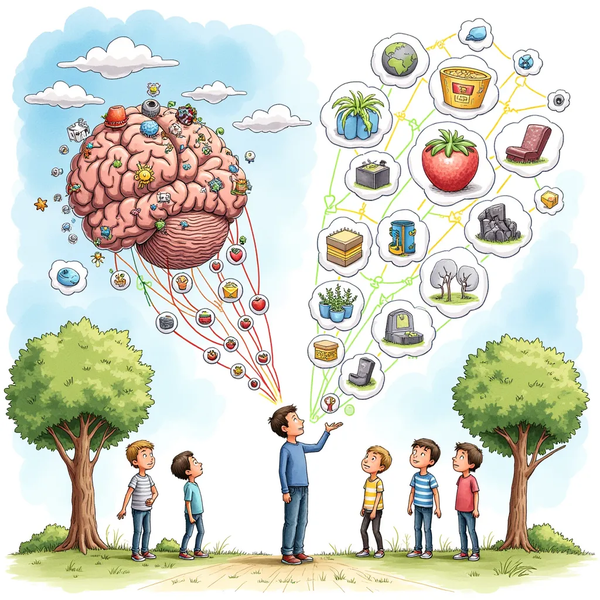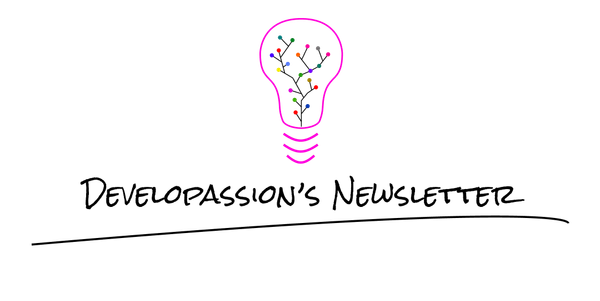Avoiding Cognitive Overload
Close those tabs to regain mental resources and be more productive

In this article, I'll discuss about cognitive overhead and its impact. I think about this concept every time I see someone else's browser tabs, and I cringe.
In a previous article, I shared some ideas about how to "save" and "restore" mental contexts. That article was mostly focused on reducing multitasking in order to maximize productivity. Here, I want to focus on the obvious (and less obvious) impact of keeping many tabs open in our Web browsers. I also want to share some thoughts about how to reduce your cognitive load.

What is cognitive load?
The concept of cognitive load corresponds to how much of our mental resources we are using (more specifically, our working memory resources).
Our cognitive load is not stable over time. Our cognitive load is generally limited when we wake up, but it increases as the day progresses. We receive notifications, reminders, phone calls, e-mails, and other things that keep adding to our current cognitive load. It also varies depending on what we are working on or thinking about.
The higher the cognitive load, the harder it gets to focus, and the easier it gets to exhaust our mental energy. Studies have shown that a high cognitive load can reduce academic success, and I have no doubts that it can reduce success in various aspects of our lives.
Intrinsic cognitive load is sneaky because it accumulates without us noticing... Until it's too much.
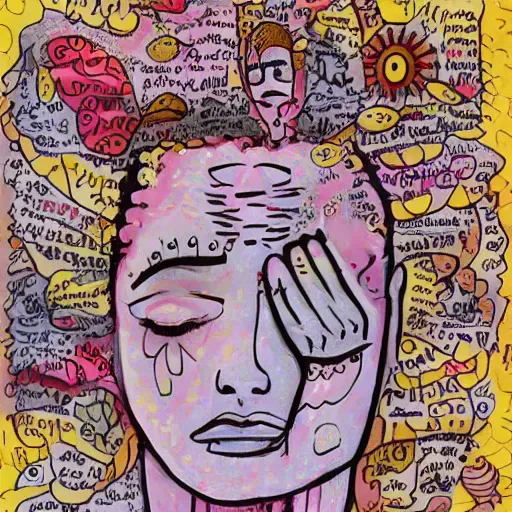
Paying attention to cognitive load is key
What we often don't think about is how our activities influence (increase or decrease) our cognitive load. And that's a mistake! Keeping our cognitive load low is an excellent way to reduce stress, recover mental energy, and be able to focus more easily.
When we start thinking about it this way, we can adapt our behavior and design systems to minimize the cognitive load we "inflict" upon ourselves.

Mental contexts
In my article about mental contexts, I've mentioned the fact that while we work on something, we create a mental context for that work. It's a space in our mind where we regroup information about what we're busy with. We store and retrieve information in that mental context as needed, just like computer programs do.

We not only create/maintain mental contexts while we're working, but also during other types of activities like watching a movie or having a drink with friends. As we explore a story, we accumulate information about the characters, their backstories, the locations, etc. In the same way, as we discuss with friends, we accumulate information about the stories and jokes we are told, etc.
Most of the mental contexts we create remain somewhere in our minds for some time. Sometimes only a few hours, sometimes days or weeks, depending on how important the information is, and how much it impacts us.
All of those mental contexts contribute to increasing our cognitive load. The more there are, the easier it is to be overwhelmed. So, one way to reduce our cognitive load is to reduce the number of mental contexts we create/retain in our minds.
Impact of Web browsing on cognitive load
While we surf the Web, we also create mental contexts and increase our cognitive load. We open a first page, read the title, and retain some information about the content, about the context, etc. Then we open one or multiple links, maybe explore some of those and retain information about those as well. And we repeat the operation as many times as we open browser tabs.
I want to argue that people who accumulate many open tabs actually also accumulate mental contexts. Those may not remain in their short-term memory for long, but they're often stored in memory and are restored whenever specific tabs or groups of tabs are resurfaced.
I often open 10-15 tabs while working on something. I look at a number of those and retain some of the information. Then I forget about that browser window, open a new one and go on to work on something else for a few hours/days. After some time, I stumble upon that browser window and those tabs again. Then of course, I restore the mental context I was in at the time. Often only partially, but enough to pollute my mind with a mental context that adds to my current cognitive load... This has happened to me a number of times already.
Long story short, keeping many tabs open is a surefire way to ultimately increase cognitive load because we retain information about many of those tabs. The obvious solution is to close the tabs you don't need anymore instead of keeping those around "just in case". If those contain important information you need to come back to, then either take notes (e.g., using a tool such as Obsidian, bookmark the page or save it somehow).
Reducing cognitive load
As I've mentioned, the key to reducing cognitive load is to pay attention to it. Consider that all the information you get your eyes on is sticky, and that some of it will "pollute" your memory. Unless that information is critical, it's best to store it elsewhere than in your memory. For this reason, note-taking is one of the best ways I know to keep the cognitive load in check. By taking notes, you basically tell your brain "it's okay to forget this". This is one of the reasons for which I am so fond of note-taking. It's my magic solution to "declutter" my mind. Furthermore, learn how to take smart notes. The better you get at note-taking, and personal knowledge management in general, the easier it will be for you to reduce your cognitive load.
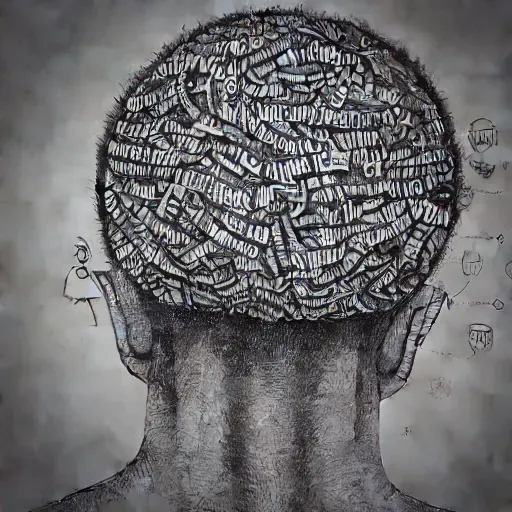
Another way is to avoid having to make too many decisions. Decision-making fatigue is real, and it's related to cognitive load. If you have to make decisions all day long (whether important or not), you need to create mental contexts to make those, and thus you increase your cognitive load. Reduce your decision-making, for instance, by defining clear routines and processes, and you'll free up your mind for other things.
Letting go is also a great way to reduce cognitive load. If you hesitate about keeping a browser tab around for a little longer, then just close it and forget about it. If it was important, then you'll surely find it back.
Delegating is another tactic that can help you recover mental space and mental energy. Instead of trying to do everything on your own, accumulating cognitive load, just delegate and trust those you delegate tasks to. If you don't trust them, then you'll just increase your cognitive load.
Obviously, avoid multitasking like the plague. Multitasking is the best way to feel overwhelmed, deplete your mental energy, and be unproductive.
Apply the Keep It Simple Stupid (KISS) principle. Keep things as simple as you can for as long as you can. Whenever you complicate things in your life, you just add cognitive load.

Apply the Divide and Rule approach (divide et impera) to solve problems. Focus on one sub-problem at a time. Generally speaking, get better at problem-solving so that you can reduce the time during which you retain information in memory. I've covered various techniques in my book about the software craft.
Be prepared and be organized. Whenever you start working on something, make sure you prepare yourself adequately. The last thing you want is to have to start preparing instead of starting to work. Being prepared is a great way to limit the quantity of information you need to keep in mind. Being prepared is multi-dimensional. You need to prepare your tools, your environment, your state of mind, your team, etc. You also need to make sure you know what your goals are. Do everything you can to make everything as smooth and as easy as possible, whatever that means.
Improve your environment. Having a noisy or messy environment is a recipe for disaster. Anything that takes your attention away from what you want to do will negatively impact your mental energy. If your attention is taken away by something, then it means that your brain is processing information that doesn't contribute to what you want to achieve (i.e., more cognitive load).
Focus. Beyond your environment, you need to control yourself and control your attention. Being "in the zone" is ideal to be productive and avoid adding to your current cognitive load.
Take time. When you start working on something, make sure you are not in a rush. You need to reserve enough time to avoid needless stress that will only contribute to increasing your cognitive load.
Once again, build systems and routines to help you simplify everything in your life. The more you can live on autopilot (with some limits, of course), the better for your cognitive load.
Finally, rest. Rest is key to be able to reduce cognitive load. Your brain needs "offline time" to be able to save or discard mental contexts and recharge. Make sure to sleep enough, to take regular breaks, and to breathe. Respecting your body is crucial.
References
- Cognitive load @ Wikipedia
- Cognitive load theory
- Nine Ways to Reduce Cognitive Load in Multimedia Learning
- KISS principle @ Wikipedia
Conclusion
In this article, I've explained what I know about cognitive load and why it's important to be careful about it. I've discussed how mental contexts impact our cognitive load and shared a few strategies you can use to reduce it.
Hopefully, after reading this you'll finally stop accumulating browser tabs and you'll free up both your computer's memory and your own!
That's it for today! ✨
About Sébastien
I am Sébastien Dubois. You can follow me on X 🐦 and on BlueSky 🦋.
I am an author, founder, and coach. I write books and articles about Knowledge Work, Personal Knowledge Management, Note-taking, Lifelong Learning, Personal Organization, and Zen Productivity. I also craft lovely digital products . You can learn more about my projects here.
If you want to follow my work, then become a member.
Ready to get to the next level?
To embark on your Knowledge Management journey, consider investing in resources that will equip you with the tools and strategies you need. Check out the Obsidian Starter Kit and the accompanying video course. It will give you a rock-solid starting point for your note-taking and Knowledge Management efforts.
If you want to take a more holistic approach, then the Knowledge Worker Kit is for you. It covers PKM, but expands into productivity, personal organization, project/task management, and more:
If you are in a hurry, then do not hesitate to book a coaching session with me:



